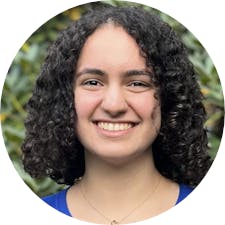Brown produced the second-highest number of Fulbright scholars in the nation for the 2023-2024 program year, according to data from the Fulbright Program. The 36 scholarship winners — including both recent alumni and current graduate students — are teaching or conducting research in more than two dozen countries.
Brown has been ranked among the top three Fulbright-producing institutions in the country for the past eight years, holding the nation’s top spot a total of four times in that period, The Herald previously reported.
The Fulbright Program provides roughly 2,000 students annually with funding for research or teaching to “exchange ideas and contribute to finding solutions to complex global challenges,” according to the program’s website.
The 2023-24 Fulbright scholars are currently halfway through their year of research or teaching, according to a Feb. 13 University press release.
“Brown’s recognition as a top producing Fulbright institution is a reflection of our phenomenal students, who forge unique postgraduate paths through teaching, rigorous scholarly inquiry and service,” Assistant Dean of the College for Fellowships Joel Simundich said in the release. “We are immensely excited to see where their paths take them.”
The Herald spoke with four Fulbright awardees about their motivations for applying, current research, experience abroad and goals for their work.
Inspired by a semester abroad in Berlin during his junior year, Erik Brown ’23 applied to the Fulbright program to further pursue his work at the Global Public Policy Institute, a think tank that conducts research on global affairs and public policy. The Fulbright grant provided him the opportunity to conduct research on issues that interest him while working with colleagues that he had gotten to know during his semester abroad, he said.
Brown’s current research explores how American domestic politics affect Germany and the rest of Europe, particularly in regard to the upcoming 2024 U.S. elections. “With the very real possibility that former President Trump could be re-elected, I am curious how European governments are preparing for a wide variety of scenarios,” Brown wrote in an email to The Herald.
According to Brown, his research so far has involved a range of experiences, including “primary and secondary source analysis, interviewing with policy experts and government officials in Berlin and attending high-level events like the Munich Security Conference.”
“With regards to my current work, I simply hope to begin building a profile and research portfolio within the realm of transatlantic policy and continue meeting with and learning from fascinating individuals,” Brown wrote.
For Zander Blitzer ’22.5, the Fulbright program was an exciting opportunity to build upon her senior thesis on history and gender policy. “As someone who values intercultural experiences, I was excited to apply and thrilled to be accepted,” she wrote in an email to The Herald.
Blitzer is currently pursuing her research in India, studying how the country has implemented and enforced laws regarding sexual harassment in the workplace. Her passion for the topic stems from her “longstanding interest in gender policy, particularly as it relates to women's economic security and health,” she added.
“My goal is to raise awareness about workplace harassment in India and join the global conversation around protecting women in the workplace,” Blitzer said.
Blitzer said she has enjoyed exploring India and the city of Bangalore, specifically through learning about cultural traditions and visiting others in the Fulbright program. “It’s an unbelievable opportunity to live and work abroad with a huge amount of flexibility and a built-in community of other Fulbrighters,” she said.
Being part of a larger community of Fulbright scholars is an important aspect of the program, according to Phoebe Labat GS, a current PhD candidate in history conducting research in France. Labat said she was excited about meeting her fellow scholars at orientation, noting that all of them seemed to have interesting backgrounds.
Labat noted that her studies at Brown helped her explore the intersection of her interests in natural disaster response and French colonial history, which she decided to explore for her dissertation and Fulbright award. “Brown was a really open-minded place where all these ideas could come together for me,” she said.
In her research, Labat is currently studying archival colonial correspondence, focusing on how issues of slavery, religion and commerce relate to the effects of natural disasters in the French colonial sphere. Her research will involve stints in multiple French cities, the islands of Martinique and Guadeloupe and, upon her return to Providence after her Fulbright, the John Carter Brown Library.
Otto Olafsson ’23 is “studying the impacts of climate change and extreme climatic events on the health of vulnerable communities in the Dominican Republic.” The Fulbright program has allowed him to connect with the needs of individual areas in the country, he said.
“I've always been interested in community-based interventions and health equity,” Olafsson said. “I really liked that aspect of working in communities and addressing these pressing health issues.”
Olafsson added that his love for traveling contributed to his interest in the Fulbright Program. According to Olafsson, his experience taking a gap year from Brown — during which he worked for the CDC in Puerto Rico — inspired him to pursue further work abroad.
“I fell in love with everything about the culture (in the Caribbean) and felt like it would be a good fit for my next step after Brown,” Olafsson said.

Sophia Wotman is a University news editor covering activism and affinity & identity. She is a junior from Long Island, New York concentrating in Political Science with a focus on women’s rights. She is a jazz trumpet player, and often performs on campus and around Providence.





